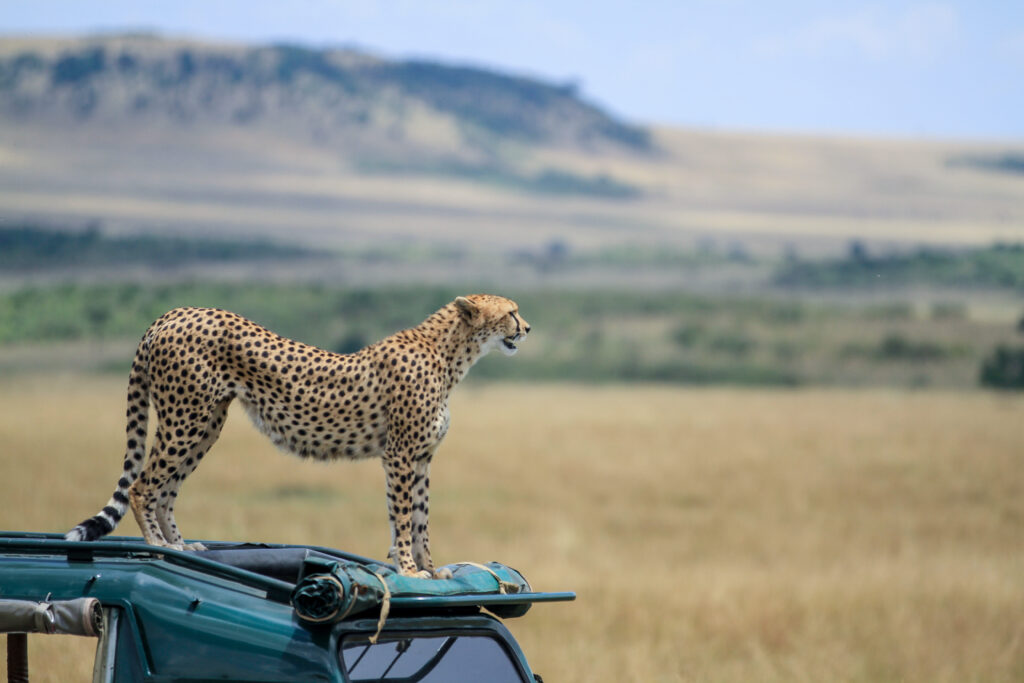This website uses cookies so that we can provide you with the best user experience possible. Cookie information is stored in your browser and performs functions such as recognising you when you return to our website and helping our team to understand which sections of the website you find most interesting and useful.
Cost of travel in Tanzania
Tanzania is a vibrant culture home to vast, beautiful landscapes, soaring mountains, paradise islands and the famed Serengeti – one of the best national parks in the world. But that doesn’t mean that a holiday to Tanzania needs to break the bank. There is no one budget option to suit all – your holiday can cost as little or as much as you like. Are you happy to stay in cheap hostels, eat at local restaurants and travel long distances on buses? Or do you prefer private game drives, luxury glamping and dinners with a view? Or perhaps, something in between? Tanzania caters for all types of budget.
So, how much does the average holiday to Tanzania cost? In Zanzibar, a meal in an inexpensive restaurant will cost around US$5, and a meal for two in a mid-range is around US$ 27. A bottle of water is around US$ o.3.
You may pay less in other areas.
The currency in Tanzania is the Tanzanian Shilling (TZS).
Food & Drink
While certain activities such as visiting remote parks and secluded, paradise islands are a high cost in Tanzania, you’ll be pleased to know that food is not among them. You can easily pick up fantastic local diners and delicious African street food for just a couple of dollars.
We often call friends who live in the country or rely on our last visit to calculate the cost of living. Try Cost of Living to help you keep up to date with local costs.
Admission Fees
Chances are the admission fees for safaris and national parks will be the bulk of your costs to Tanzania. For example, entrance to the Serengeti National Park costs around US$70, and admission to Kilimanjaro National Park is about the same. But unfortunately, the cost of a safari doesn’t stop there. On top of the entrance fee, you will also need to account for the costs of entrance for your vehicle, guide and accommodation. Be careful, if you are making your own booking, to check what is and what isn’t included.
An organised tour with a tour operator will usually have all costs and exclusions clearly detailed in your itinerary.
Transport

The cheapest way to travel around Tanzania is by bus. Public mini-buses, also called dala-dalas, service almost everywhere you want to go which cost between 100 and 150 TZS for a journey. Coaches serve longer journeys and cost more for the added comfort. Taxis do not use meters in Tanzania, so make sure you agree on a price before setting off; short trips start at 2000 TZS. A cheaper option is to travel small distances in a tuk-tuk.
Depending on your chosen itinerary, tours in Africa use a combination of private vehicles, flights and overland trucks.
Tipping & costs in Tanzania
Wages in the service industry are generally low, so servers depend on tips to supplement their wages. It is always best to provide a tip in the local currency of the Tanzanian Shilling. Remember, adding a few shillings can go a long way.
Restaurants
In rural areas, most locals don’t offer a tip. That said, tourists always tend to add a little more. In mid-range restaurants, frequently visited by tourists, it is standard to leave a 10-15% tip. Top-end restaurants will generally add a service charge to the bill, in which case you will not need to provide a tip.
Guides
We always advise our passengers to tip their guides, no matter their whereabouts in the world you are. Guides wages predominantly come from tips, so adding 10-20% can go a long way.
Transport
Taxis in Tanzania don’t run on a meter, so you will need to negotiate a fee beforehand, meaning you do not need to provide a tip. However, if your driver was particularly helpful providing information, directions and helping with your luggage, feel free to add a small tip of 100 TZS.
Can you haggle in Tanzania?
Like many places in Africa, bargaining for your purchases is part of the way of life. It is common to negotiate for taxi rides, products and souvenirs at markets and street stalls. If you are travelling outside of high season, then you can often negotiate the price of your accommodation too. Outside of this, most items will have a fixed rate. That said, whenever you’re bargaining for an item, be respectful and don’t push too low. Decide what you think is a fair price and be reasonable.
You can read more about our commitment to Responsible Travel here.
We are passionate adventure travelers who want to share the world and our travel experiences with everyone…
